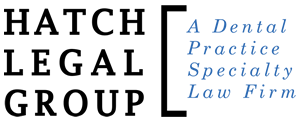Social Media and the Dental Office
The explosion of social media’s influence on the workplace has been exponential lately, and dental offices are no exception. So, when can employees talk negatively about their dental employer on Facebook and other social media? Disgruntled employees criticizing the dental practice on Facebook, especially when it is visible to a large number of “Friends,” can have a detrimental influence on the practice reputation in the community. So how does a dentist limit the harmful effects of these kinds of actions?
The National Labor Relations Board this summer has come down with several rulings which clarify how employees are protected when they make postings about their employers on Facebook. First, it is necessary to note that when employees discuss the terms and conditions of their employment, including wages and poor working conditions, they are protected under the National Labor Relations Act, even if it is a non-union workplace. Those discussions are considered “concerted activity” protected as if the employees were thinking of creating a union to demand better wages and working conditions.
The NLRB has filed suit this past summer against an employer who fired an employee who discussed workplace conditions on Facebook with other employees. The NLRB clarified its position on this issue, with support of a U.S. District Court ruling, that individual complaints, and not discussions, about terms and conditions of employment on Facebook is not protected as a concerted activity.
The recourse of a dentist as to compensation for making false claims on social media of poor working conditions and of poor dentistry at a particular dental practice is often to file a defamation claim. This is a tricky claim by a dentist to make because courts usually consider the public policy of allowing the general public information about poor medical or dental practices. In almost every claim brought by a dentist for defamation both this defense and First Amendment rights to free speech of the person making the allegations on Facebook or other social media are used to counter any claims of injury to a dentist’s reputation. Special sites like Yelp which serve as informational tools for the review of dental and medical practices have been involved in lawsuits brought by dentists for injury to their reputation, and in the Yelp cases public policy and statutes promoting public information release prevented any recovery by the dentist.
However, as in all defamation cases, truth is always a defense to any claims of poor practices, as well as a vital part of any claim by a dentist for injury to reputation by inaccurate claims. Some cases have been partially decided in favor of defamation defendants on the public policy issues, and then continued for further fact finding as to the truth or falsity of the claims. The intent of the patient or former patient to injure a dentist’s reputation with false claims is often a big factor in a jury or court decision. A dentist alleging injury to his or her reputation by false claims must have all claims of falsity of any claims fully supported by witnesses and a great deal of other evidence.
Now that we have explained the legal consequences of claims by former employees or patients who make damaging claims of poor dentistry or poor working conditions, what are the practical ways of preventing such complaints from being posted on Facebook, etc. in the first place? First of all, with regard to employees, there should be written policies in an employee handbook prohibiting the use of social media during work time. Employer rights to access to employee’s conversations on employer owned devices must be explicitly laid out as well, because of privacy concerns of employees if the employer uses information about complaints to fire those employees.
The restrictions of HIPAA and other patient information protection statutes can be an important way of prohibiting employee discussion of an individual patient’s health information. If any patient’s health or private information which could possibly identify a patient is revealed in employee discussions outside of the workplace, or in the workplace to the wrong party, it is a violation of HIPAA and probably other privacy statutes. These statutes now carry individual monetary penalties as well as penalties for a supervising practice. Thus, if a poor practice by a dentist is revealed on social media, and it includes unique characteristics of the patient’s mouth, age, or other identifiers, an employee can be subject to civil and criminal penalties. The employee handbook should note those restrictions and penalties.
The information revolution which social media has helped develop can be both helpful to dentists’ reputations as a good practitioner, as well as damaging to reputations if either false or otherwise inaccurate. The resulting transparency in dentistry is all the more reason to prevent by good practices any complaints from occurring in the first place.
